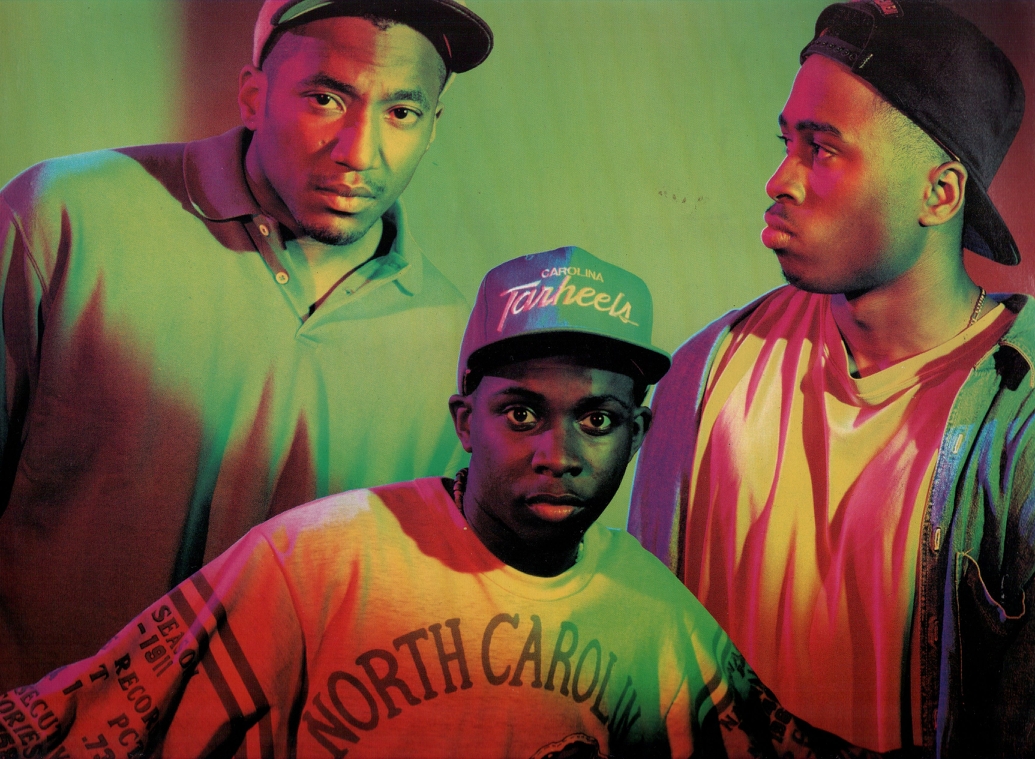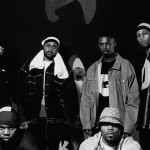Beats, Rhymes and Phife: A Tribute

When you’re a kid, you want to be a grown-up so badly sometimes you consider saving up for a Zoltar Speaks machine that you can put in your room. And sometimes in adulthood, you want to warn Little You that the world’s got a sabre, and sometimes it aims for the jugular. Even worse? Sometimes it connects.
There is no way to explain to a small child the dislocation or the loss of dignity that occurs over, say, losing your wallet or getting robbed, or an ex that broke up with you but still cares — just not enough to want you back. Car crashes, home invasions, temporary layoffs, easy credit ripoffs, bad breaks, set backs, a googolplex of other things. But maybe the worst thing about adulthood is that in surviving it, part of the collateral damage means watching your childhood heroes get picked off one by one while you stand there shellshocked, trying not to get swallowed up by the undercurrent left in the wake of their passing.
A reminder of that came the hard way today with the passing of Malik Issac Taylor — better known as Phife Dawg of A Tribe Called Quest. He was 45.
Was. What a horror flick of a word. I can’t be objective here, and I’m not even going to try to put on a facade to do so. Bowie’s passing earlier in the year hit hard, admittedly. But for as much as I loved Bowie, I never felt a molecular bond to him. He was so damn good at being from the ether and the beyond that when he passed in a sad way it almost felt like he was going back to where he belonged. Some glorious cosmic accident had put him amongst the rabble decades ago, for whatever reason he liked it and decided to stay (hence all the costume changes over time). When the accident was discovered things had to be rectified, so back he went.
I am the older brother in a pairing, and what it took aging to realize was that in lieu of an older brother of my own, I looked up to vintage hip-hop era rappers. But even as a precocious young buck, I knew some things. I didn’t know everything — that’s Neil DeGrasse Tyson’s field — but I knew some, even and in some cases especially from those I admired the most.
To say I loved Eric B. & Rakim would be like saying I loved breathing. And really, I only needed air to be conscious enough to play Paid In Full again. But Rakim staked his claim to being the G.O.A.T. by being on what the kids called some extra shit. You didn’t even have to get through a hot 16 to realize the Bowie level of otherworldly he was. It was like watching that young dude with Chicago and the funny commercials with Mars suddenly eating Larry & Magic’s lunch. Even a kid could understand that much more or less on impact: this is the future, that’s the guy. But that never translated downwards; it was on a level so pristine and incomparable that you felt “Man, no matter how hard I try, I’ll never be *that*.” And time went to bear that out, no matter how many Rakim lyrics I hold dear to my heart even now.
Biggie was a different thing entirely. If Rakim would’ve been a much older brother, oddly (?) mirroring the nine years between me and my little brother, then Chris Wallace seemed more like a classmate than a sibling. No matter how much he rapped about selling drugs, nailing chicks, shooting people or hiding from the police, it always seemed to be with an elbow poke and a slight nod toward something off in the distance with a wan smile on his face. The thing that was most notorious about him before the way he was gunned down was his gift of gab, and while not as proliferate as he was with his I was also a snarky class clown type. You know brothers like us — talk themselves into five pounds of trouble, talk themselves back out with a pound or two left to spare, wait five minutes for the next stray thought, lather, rinse, repeat. He did it because he was fat; I did it because I was small. But really, we did it for the same damn reason: if you were too busy laughing with us, you couldn’t laugh at us. To continue a baller analogy, Biggie was Penny before his knee turned into so much puff pastry — world-class and seemed like he was going to be the harbinger of a future formerly incomprehensible that had vague ties to the past, but in the end all you were left with was the question “Why?” as a thousand thorns keeping you from the beautiful rose of a few dozen great memories.
I suppose the passing of Phife is hitting me hard because I felt even before I grabbed hold of this particular lexicon that A Tribe Called Quest was the closest analogue to me even as I loved and worshiped them, and I was always more of a Phife guy than a Q-Tip guy. Not to be confused with being anti-Q, but when he had his single break out after the band broke up and it was something (admittedly awesome) like “Vivrant Thing,” you didn’t need a paternity test for it. You always knew Q was capable of something like this, and then he did it.
Phife never got that Jeep bumper; it was vaguely appropriate he didn’t. Part of what kept Tribe from being written off as soft hippies like counterparts De La Soul was the undercurrent of menace Phife brought to the group by being the 5-foot assassin with the roughneck business. He was not an instigator, but you got the feeling if need be that he’d be a closer. Busta Rhymes knew exactly which of the triad to shout out first in “Woo-Hah!! Got You All In Check,” let’s just say that much. And Phife had earned his low-key crown in under five years during what a lot of people reflect back upon as the golden age of hip-hop, whether he was spinning verbal straw until it shone on classic tracks like “Buggin’ Out,” “Scenario,” personal favorite “Oh My God” or “I Left My Wallet In El Segundo.”
In 2004 ATCQ came through San Diego for Street Scene, on a sort of semi-reunion tour that hinted at wider if equally more infrequent appearances to come in the years to follow. I think about it every time I walk through Petco Park’s parking lot: how I got there in the middle of the previous band’s set (because that was the style at the time), and then as these neutrons who’d had no effect on me were done casting looks back at everybody around me who were leaving with disdain and exchanging smirks and grins with the handful of people who were all crowding toward the front before Tribe got on. I’d put on a Low End Theory shirt I’d bought 90 before, and my kingdom for it now.
That August afternoon as the sun went down off to our right behind the Convention Center, A Tribe Called Quest came out and took my motherfucking face off. It was definitively the best show I’d ever seen in my life up to that point — nothing has surpassed it in the decade-plus since — and that’s even before factoring in the are-you-fucking-KIDDING-ME encore of “Can I Kick It?”, “Scenario” and “Award Tour.” It felt like the times when I’d put their greatest hits Anthology on my Discman when I’d go out, except infused with the live energy of great artists doing great work and being enthused about doing it. As everybody who’s seen the documentary Beats, Rhymes and Life knows, in Tribe and especially Phife’s instances, that was not always the case. But that day was special. I knew the last two songs of the encore the way Young Me knew he would never be Like Mike and when the opening bass of “Scenario” came in I still shrieked like a Belieber, grabbed some stranger next to me, and jumped up and down with my hands on their shoulders yelling the chorus and verses like my life was on the line.
Once Tribe were finished I staggered off like a drunk on Mardi Gras. I was in the vicinity of Ludacris afterwards and may have even been there for the whole time, which was a mistake. Not that he was horrible or anything, but he might as well have been whatever band drew the fool’s assignment of opening up for Tribe; I was present but not really there. That was the first time, the last time, I heard the Funky Diabetic. And where fans of his go from here? I don’t know, man. I don’t know.
But I know this — around the time of that concert my brother complained about the sameness of what was passing for hip-hop on the radio. And I knew what I had to do. I was the older brother. Teach them well and let them lead the way and all that like Nick on Saturday nights in my own youth too young for him to remember. I handed over a pile of stuff. Second most prominent was The Roots. Most prominent was Tribe. And again, this is over 10 years ago now.
In addition to whatever other work Vegas will allow, my little brother all-growns-up spits bars of his own now. And as I heard a song of his last year that seemed to be securely in the Tribe mold without being a ripoff, in his own laid-back words over the chorus’ muted jazz he got he (mockingly?) complained that “nowadays they could call me old-fashioned.” I laughed so hard I think I scared the white people across from me in the restaurant.
What I successfully ended up inadvertently doing for my no-longer-so-little brother was what Phife did for me, even if he never got to find out the true scale of his largess. In a world of Jordans he gave us a Rambis to relate to. He showed us cleverness was not the employ merely of the All-Time team but could belong to the hardworking bench man as well. Until the end, he never let his illness overcome him, and defined himself by it to use as much as a lyrical sword in addition to a real life shield.
And yeah, Jordan’s the best ever. No one argues this. But Rambis got his rings, too. And people usually forget that. We won’t forget Phife, though.
Rap In Perpetuity, Malik.
You might also like:



Butch Rosser is a frequent writer, part-time DJ and full-time audiophile. In addition to his Treble contributions, he is currently at work on his first novel, The One Man Jihad. He lives with his fiancee and her cat.


Well written, Butch. What a send off. Phife would be proud of you. FOR SURE.
-Holly